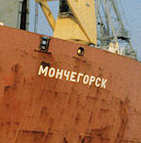
ABOVE:Wermelskirchen
An indictment was filed last Thursday in Federal District Court in Boston against Schneider GMBH, a manufacturer and exporter of industrial products located in Wermelskirchen, Germany, for conspiracy to export pump parts from the United States to Iran. The indictment also names as defendants two of the company’s principals, father and son Hans Werner and Christof Schneider.
The indictment alleges, among other things, that Hans Werner Schneider contacted undercover federal agents by email requesting assistance in procuring pump parts for a “restricted foreign destination.” Subsequently, Schneider sent a purchase order via email and air courier to the undercover agents. Other acts in furtherance of the conspiracy alleged by the indictment included telephone conversations, facsimile transmissions, and emails between the Schneiders (while in Germany) and the undercover agents and representatives of the part manufacturer.
Significantly, at all times during the alleged conspiracy and thereafter, Hans Werner and Christof Schneider were outside the United States. All acts in furtherance of the alleged conspiracy occurred outside the United States. The conspiracy was thwarted and no pump parts were actually exported from the United States. These circumstances raise serious questions as to whether the United States has jurisdiction to indict the Schneiders and their company.
The first question in determining whether criminal charges can be asserted against the Schneider’s is whether Congress intended the statutes involved to have extraterritorial application. The Schneider’s are accused of violating the International Economic Emergency Powers Act (“IEEPA”), 50 U.S.C. § 1701 and the Anti-Smuggling Statute, 18 U.S.C. § 554. Although it’s not clear that Congress intended the Anti-Smuggling Act to have extraterritorial application to conspiracies outside the United States, it is clear that Congress intended that IEEPA was intended to have extraterritorial effect. See, e.g., United States v. McKeeve, 131 F.3d 1 (1st. Cir, 1997). However, U.S. courts will look at international law in determining the extent of extraterritorial application intended by Congress. See, e.g., United States v. Mow, 730 F.2d 1308 (9th Cir. 1984).
U.S. courts have allowed prosecutions of extraterritorial conspiracies in certain instances based on the territorial principle of international jurisdiction. These courts found the requisite territoriality in the effects that the conspiracy has on the United States. In the export arena, the fact that goods are U.S.-origin has been alleged as a basis for exercising jurisdiction under the territorial principal. But when the alleged conspiracy is thwarted and the defendants never actually export anything from the United States, these two territorial bases for U.S. jurisdiction collapse. Even if a U.S. court would find jurisdiction in this case, it is doubtful that a German court would actually permit extradition both because of the tenuous jurisdictional nexus and because exporting these items from Germany to Iran doesn’t appear to be illegal under German law.

 Posted by
Posted by  Category:
Category: 

 Retired Russian merchant ship Monchegorsk, alleged to be carrying Iranian arms shipments, wound up in Cypriot hands after being forced by the U.S. Navy to moor in Cyprus last week. The ship was searched by Cypriot authorities which on Tuesday
Retired Russian merchant ship Monchegorsk, alleged to be carrying Iranian arms shipments, wound up in Cypriot hands after being forced by the U.S. Navy to moor in Cyprus last week. The ship was searched by Cypriot authorities which on Tuesday  Yesterday the Bureau of Industry and Security (“BIS”) released four settlement agreements arising out of a scheme by a large Taiwanese company to use its U.S. subsidiary to export products (mostly chemicals, metals and electronic components) on the Commerce Control List without the required export licenses. The parent company, with an improbably soothing name for a distributor of toxic chemcals,
Yesterday the Bureau of Industry and Security (“BIS”) released four settlement agreements arising out of a scheme by a large Taiwanese company to use its U.S. subsidiary to export products (mostly chemicals, metals and electronic components) on the Commerce Control List without the required export licenses. The parent company, with an improbably soothing name for a distributor of toxic chemcals, 

